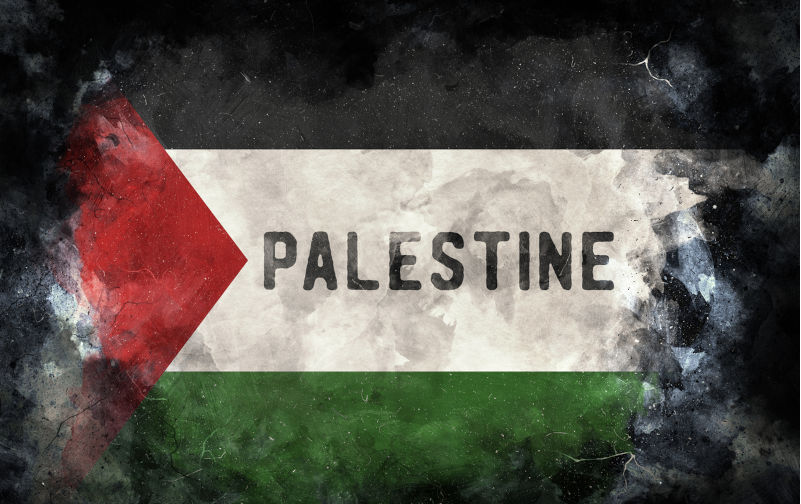Recognition of Palestine: A neocolonial, feel-good gesture
August 16, 2025
Recognition of Palestine is a “feel-good” gesture that will not achieve any tangible benefits for the Palestinian people and amounts to a neocolonial denial of the right of the Palestinian people to self-determination.
The current trend of recognition of the State of Palestine, comprising Gaza and the West Bank, perpetuates the colonialist impositions that began with the San Remo conference of 1920 when the victorious powers from World War I carved up the territory of the defeated Ottoman Empire with a series of proposed mandates. In drawing up the mandate for Palestine, they dismissed Arab objections and incorporated into it the Balfour Declaration favouring “the establishment in Palestine of a national home for the Jewish people”.
The Palestine mandate should never have been granted in the form it took. In accordance with Article 22 of the League of Nations Covenant, its objective should have been to render administrative advice and assistance to the people of Palestine until such time as they were able to stand alone as an independent nation. Instead, the mandate included in its principal object the Balfour Declaration formula of establishing a Jewish national home in Palestine. By doing so the Allied powers favoured the Jewish community over the Arab community, both of which have historic claims to the land of Palestine.
Having failed by diplomatic means to prevent the League of Nations adopting the Palestine mandate, the Arabs resorted to violence against the Jewish community. Inter communal violence in Palestine was not new. It had occurred before, particularly during the 19th century as increasing numbers of Jews emigrated there to escape pogroms in Europe. Between the wars, the violence intensified, with serious clashes in 1920-21, 1929, and 1936-39. Armed resistance continues to this day as the Arabs of Palestine, now known as Palestinians, continue to reject the idea of a Jewish national home in Palestine and its current incarnation in the State of Israel. Modern weaponry has transformed once limited clashes into full-scale urban warfare with devastating effect on people’s lives as television newscasts lay bare.
When third-party countries recognise the State of Palestine as currently proposed, they are not only giving effect to the former mandate, which the Palestinian people have never accepted, they are also acquiescing in the partition of Palestine into a Jewish state and an Arab state without first obtaining the consent of the Palestinian people. The spirit of San Remo is alive and well.
The Palestinian Authority’s endorsement of such recognition is not sufficient for this purpose. A poll by the Palestinian Centre for Policy and Survey Research taken in May 2025 shows Hamas outscoring the Palestinian Authority 57% to 23% in party satisfaction. Moreover, the poll shows that only 40% of Palestinians support a two-state solution or the establishment of a Palestinian state alongside Israel.
Having said all that, as an outsider with no skin in the game, I believe a two-state solution is the only way to end the conflict between Palestine’s two historic communities. I believe that continued armed resistance is not in the best interests of the Palestinian people. I believe that the Palestinian leadership was ill-advised in rejecting the several two-state proposals they were offered over the decades, including the 1937 Peel Commission plan, the 1947 UN plan, the 2000 Clinton plan, and the 2008 Olmert plan. The chronic failure of Palestinian political leadership to grasp the reality that the Jews will never relinquish their national home in Palestine has resulted in the progressive diminution of the amount of land allocated to an Arab state each time a new plan has been proposed.
Therefore, I would dearly love for the Palestinian people to agree to a two-state solution; for their sake, for the sake of the Jewish people in Israel, for the sake of the Australian people whose social harmony is threatened by the ongoing conflict, and for the sake of the world, which is divided into opposing camps.
But what I believe and what I hope is beside the point. It is not for me to tell the Palestinian people what is best for them. And the same goes for the Australian Government and other third-party countries. The decision to accept a two-state solution has to be made as an act of self-determination by the Palestinian people themselves, either through a referendum or through democratically elected leaders representing a majority of them. (I discussed how those leaders might emerge in The Belfast Good Friday Agreement – a model for Palestine?).
Recognition of Palestine now is therefore wrong in principle, for the reasons already stated. But it is also wrong in practice. It provides no tangible benefit to the people of Gaza, whose suffering has aroused public support for recognition, and will prolong the conflict as supporters of continued armed resistance feel vindicated by their intransigence. Israel’s increasing isolation in the international community gives them hope that the Jewish state will eventually be defeated along with the original sin of the Palestine mandate and its idea of a Jewish national home in Palestine.
The views expressed in this article may or may not reflect those of Pearls and Irritations.


